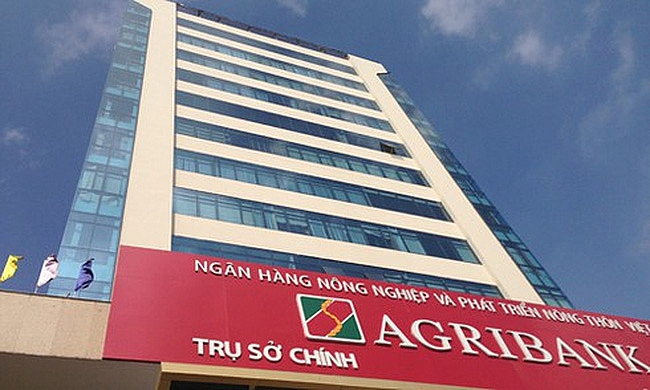Agribank IPO delay sees investors move cautiously
 |
| Agribank IPO delay sees investors move cautiously, source:VTV.vn |
Dang Quyet Tien, director of the Corporate Finance Department under the Ministry of Finance (MoF), noted in the ministry’s meeting last week that the land appraisal procedure required for Agribank’s equitisation is taking longer than expected, leading to the lender’s initial public offering (IPO) being stalled from the initial set timeframe of late 2018 or early 2019.
The MoF has been working with Hanoi-based Agribank since the start of 2018 to complete the valuation of four million square metres of land under the bank’s management. This comes as part of the preparation for the lender to be equitised in line with the government’s target to reduce state holdings at state-owned commercial banks, which is 100 per cent at Agribank.
According to Tien, state-owned enterprises (SOEs) must distinguish between the state assets and those of enterprises so that their values can be fairly assessed to ensure a smooth and fair transition to new owners. As this requires the confirmation of ownership from state and provincial bodies, it is a time-consuming practice and SOEs such as Agribank should be prepared in advance to ensure pre-scheduled equitisation progress.
Agribank chairman Trinh Ngoc Khanh previously said that the bank will likely face many difficulties in equitisation progress without elaborating further on what complexities the bank would run into. He did, however, expect the bank to be evaluated on December 31, 2018, with its IPO to occur as soon as 2020.
According to Agribank’s audited interim financial report, the bank’s total assets stood at VND1.197 quadrillion ($52.05 billion) as of June 30, up roughly 4 per cent on-year. Its owner’s equity and chartered capital were on record at VND56.7 trillion ($2.46 billion) and VND30.37 trillion ($1.32 billion), respectively. The lender posted a VND3.04 trillion ($132.26 million) post-tax profit, an increase of 37 per cent on-year.
Regarding the overall sluggish state of the SOE divestment progress, with merely 10 per cent being equitised so far, the MoF’s Tien raised one of the reasons that goes back to the determination of leaders as well as state representatives at SOEs in deciding the land value or the price of the enterprises in line with the market mechanisms that have caused the delay in the process.
“The equitisation process itself has not been improved over time, with lack of transparent information provided to investors or the organisation of auctions for the SOE sale,” he added. “The result would then be those SOEs become less attractive in the eyes of foreign investors or large-scale institutional investors when they carry out an IPO.”
“The MoF will soon publish a list of equitised SOEs that are not listed on the stock exchange, so that investors and shareholders can get updates on the development process and performance of these businesses themselves,” said Tien.
In August, Deputy Prime Minister Vuong Dinh Hue stressed that the government will continue its quest to divest its holdings at state-owned commercial banks, and Agribank is set to hold its IPO in 2019. Other state banks such as BIDV and Vietcombank are working on plans to sell further stakes to domestic and foreign investors.
According to DPM Hue, the government will not grant additional licenses in the future for wholly foreign-owned banks in Vietnam, yet it allows foreign banks to buy underperforming local franchises in order to become wholly foreign-owned banks, a move that has caught the attention of investors.
The government issued its Decision No.986/QD-TTg dated August 8 to set out a clear pathway for the strategic development of the Vietnamese banking sector for the period of 2018-2025, with a vision to 2030.
What the stars mean:
★ Poor ★ ★ Promising ★★★ Good ★★★★ Very good ★★★★★ Exceptional
Related Contents
Latest News
More News
- Cashless payments hit 28 times GDP in 2025 (February 04, 2026 | 18:09)
- SSIAM and DBJ launch Japan Vietnam Capital Fund (February 04, 2026 | 15:57)
- Banks target stronger profits, credit growth in 2026 (February 04, 2026 | 15:43)
- Vietnam on path to investment-grade rating (February 03, 2026 | 13:07)
- Consumer finance sector posts sharp profit growth (February 03, 2026 | 13:05)
- Insurance market building the next chapter of protection (February 02, 2026 | 11:16)
- NAB Innovation Centre underscores Vietnam’s appeal for tech investment (January 30, 2026 | 11:16)
- Vietnam strengthens public debt management with World Bank and IMF (January 30, 2026 | 11:00)
- Corporate bond market poised for stronger growth cycle (January 28, 2026 | 17:13)
- Vietnam's IPO market on recovery trajectory (January 28, 2026 | 17:04)

 Tag:
Tag:




















 Mobile Version
Mobile Version